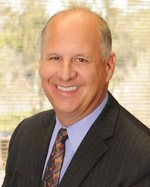Why Are Most Truck Accidents in California Caused by Trucks Changing Lanes?
Here Is a Short Synopsis, and How You Can Prevent Injury
Study after study has demonstrated that there are a number of common factors that cause trucks to strike out cars during a lane change. By far, the highest statistical factor, 22%, are attributed to inadequate surveillance by the truck operator.
Inadequate surveillance means a truck driver, in one fashion or another, did not look in his mirrors properly to determine whether there was a car present in the lane before commencing a lane change. While this would seem like common sense for a truck driver, there are other contributing factors such as driving too fast for conditions on the roadway and inattention, both adding a statistical increase in causitive factor of about 25% combined.
There are also several other factors that may cause a truck to impact a vehicle during a lane change, including vehicle defects, following too closely to respond to unexpected conditions, and too fast for curves and turns. There is always some statistical causes listed as overcompensation of truck operator (changing lanes too far) as well as poor directional control and misjudging gaps or speeds of other vehicles. Combined, these factors account for 80% of the traffic accidents on our freeways related to trucks changing lanes. What can we do to protect ourselves?
First, if at all possible, it is not advisable that you travel next to a truck in the right hand lane. When a truck is traveling in the second to the right lane, you can be assured that at some point that truck operator will make a determination to move his truck to the right hand lane where you are driving. The probability of an accident has significantly increased. If you must travel next to a truck, travel in the faster lanes were trucks are not as likely to enter.
You should also give trucks a wide berth. This is particularly difficult in Los Angeles California, according to James Ballidis, a truck accident lawyer where there is traffic congestion on virtually every freeway. One of the main traffic corridors, the 710 freeway from Long Beach, poses a very unique problem area because of the lane limitations on the freeway, and the large volume of trucks operating on that road surface.
If you are unable to avoid traveling in the lanes adjacent to a truck, you may want to consider making sure you are visible in the mirror. A good rule of thumb is to look for the driver in his mirror. If you know you can see him, there is a good possibility he can see you.
Also do not hesitate to leave an exit to get out of the way of a truck changing lanes. By traveling, for instance, in the lane to the left of the truck, keep travel where the lane to your left is open, so you can merge if the truck starts to move over.
Recognize also that trucks otake longer to change lanes than a typical vehicle. Never travel toward the front cab of the truck but toward the rear. In this way, the truck driver taking action may actually alert you to a dangerous situation and you may have sufficient time to react.
There are however occasions when you simply can't avoid an accident. In those situations it is imperative that you hire an attorney that specializes in truck accidents to immediately investigate your claim. Please feel free to call a California truck accident attorney for your accident.
Truck accident injuries are very severe, and if you cannot avoid an accident, you should have attorney investigate the accident and all the factors, interview witnesses and collect physical evidence to assure the blame is properly placed on the truck driver and not you.

by James E. Ballidis
James Ballidis is the managing attorney for Allen Flatt Ballidis & Leslie and has been practicing personal injury law for over 35 years.
Call (888) 752-7474, or send over our free case
review form, even if you're not sure. We're here to help.
You were wonderful throughout my case. Thank you so much for taking the time to explain the process so that I could feel comfortable. When I was hurt, I really did not know where to turn and Suzanne was comforting and knowledgable. Thanks again for all you did.
- H.P.


